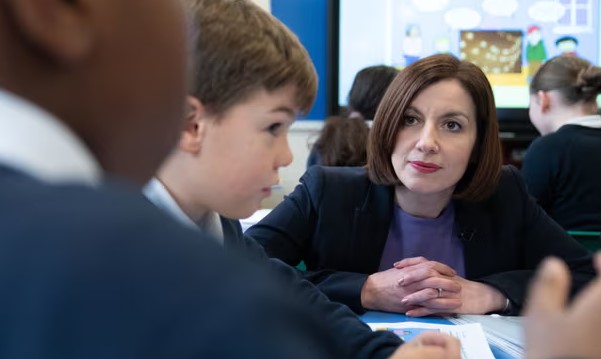Children in England should be given a unique number to link their records held by schools, health visitors and councils, allowing governments to harness artificial intelligence and data-mining to improve standards, according to the shadow education secretary, Bridget Phillipson.
In a keynote speech, Phillipson also praised the former Conservative education secretary Michael Gove for his high expectations, in contrast to the “merry-go-round” of ministers that have followed him.
Phillipson told an audience of education policymakers that current levels of pupil absences were “frankly terrifying”, and backed legislation for a register of home-schooled children as well as making data more available for those in school.
“Information about children isn’t shared in the way it needs to be. Today, too often, for too many children, that simply isn’t happening.
“We need, and Labour will bring, a simple single number – like the NHS number – that holds records together, and stops children’s needs falling through gaps within schools and between them, between all the services that wrap around them,” Phillipson said.
“The vast opportunities of the technology we have today, of artificial intelligence, of data-mining, of the automated search for patterns and learning, [offer] the promise of a country and a culture where the drive for high and rising standards is embedded in all that we do.
“All of that is useless if we don’t even collect and collate the information we have.”
Labour’s policy was announced by the party’s leader, Keir Starmer, in July, when Labour said it would pilot the use of a “children’s number” for use in education, social care and other support services.
A unique identifier has also been backed by Rachel de Souza, the children’s commissioner for England, who has called for a “consistent child ID” number to allow data sharing and highlighting areas such as attendance, safeguarding and special education needs.


